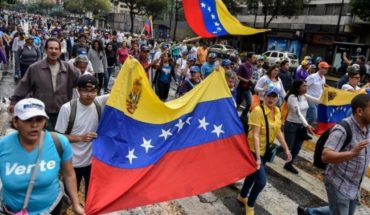The Corporation for the Promotion of Production was created in 1939 by a law that generated a great controversy in Parliament, because of the resistance of the traditional sectors that opposed greater State intervention in economic life. However, the earthquake in Chillán in 1938 facilitated its approval, given the need for greater fiscal resources to face the tragedy. This last fact was added to the growing pressures caused by the Second World War, which caused the need to replace imports in the face of difficulties, especially in maritime transport.
CORFO’s initiatives were fundamental for the industrialization of Chile that marked the economic development of the country. In this phase, the creation of some such companies as ENDESA (electricity), ENAP (oil), CAP (steel), IANSA (beet sugar), SOQUIMICH (saltpeter), ENTEL (telephony) and others are fundamental. These companies were created as autonomous entities, in the sense that they had their own laws, with their appointment of the board of directors and the system of internal government, patrimony and individual borrowing capacity. These entities generated one of the basic factors of national progress for more than three decades.
With the dictatorship, the economic and social strategy of the country changed. The goal became to “give space to the private sector,” reducing the role of the state that had characterized the preceding decades, both as producer and regulator of markets. In this process there were different phases: the first was to return to the owners the firms that had been intervened and expropriated during the fever of the Popular Unity, and then try to sell others to the interested parties.
But the larger ones administered for years by the state retained their efficiency. For them, a special plan was necessary in the absence of fiscal resources: the use of various instruments in the period 1985-1990, in which the process was headed by Hernán Buchi, as María Olivia Monckeberg relates in her book “El saqueo” (2015).
“People’s capitalism” allowed wage earners to advance their compensation for years of service, for the acquisition of shares in their company and to obtain credits with the guarantee of their titles. In addition, the AFPs acquired shares in the privatizable companies and participated in the appointments of the boards of these entities. According to historian Rafael Sagredo, it was a “little transparent” process, through which the CAP, ENDESA-Chilectra, SOQUIMICH, ENTEL, CTC, LAN and others ceased to be state-owned. The main criticism that has been made is that the new owners in many cases were the main executives who were in charge of the entities, who took advantage of the information and management, in addition to creating conditions to facilitate their patrimonial control; the best known cases were SOQUIMICH-Pampa Calichera (Julio Ponce Lerou) and ENDESA-Chilectra (José Yuraszeck and Chispitas).
Only ENAP, CODELCO, ENAMI, BECH, TVN, Metro, FFCC and some smaller ones remained in the Public Sector. For the latter, CORFO created a special committee, the System of Public Enterprises (SEP), which grouped them to facilitate more common rules, administration, mergers and concessions. However, in these cases a basically administrative function is fulfilled, not to create a company that originates the development of a productive sector or innovative initiatives.
The issue of public enterprises requires serious definitions in the future. Although the current entities have ratified the convenience of maintaining their status, a debate has been opened that must be resolved, both in the government program of President Boric, in the current proposals of some of his supporters and in the defeated proposal of the Convention in which the creation of new state enterprises was proposed, such as in the production of lithium. green hydrogen, a National Development Bank and other activities not very defined.
In these proposals is present the belief that State resources have no shortage or alternative uses and the ignorance of global and local trends in which the role of the State moved from the creation of fiscal companies to the regulation of imperfect markets, which in Chile still show serious inefficiencies. However, the longing for that past of the creation of large companies of the past is present in the institution creating illusions that disturb the central mission of productive development.
In addition, the new orientations of the CORFO must consider that in the future it is moving from Industrialization to the digital world, if the country wants to recover its development and raise its productivity by promoting new activities and ventures.
Follow us on





